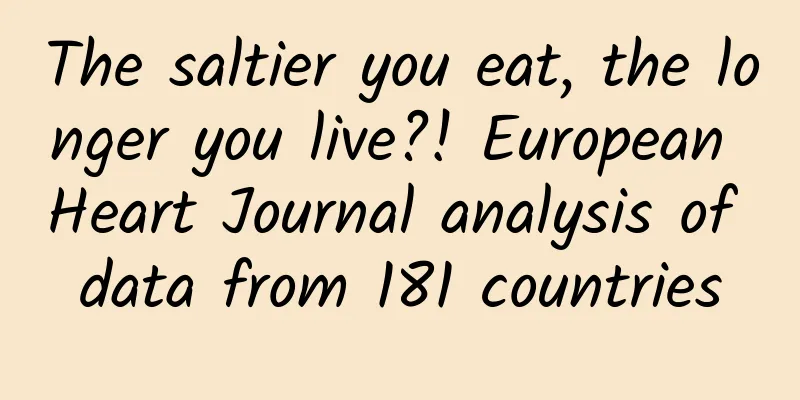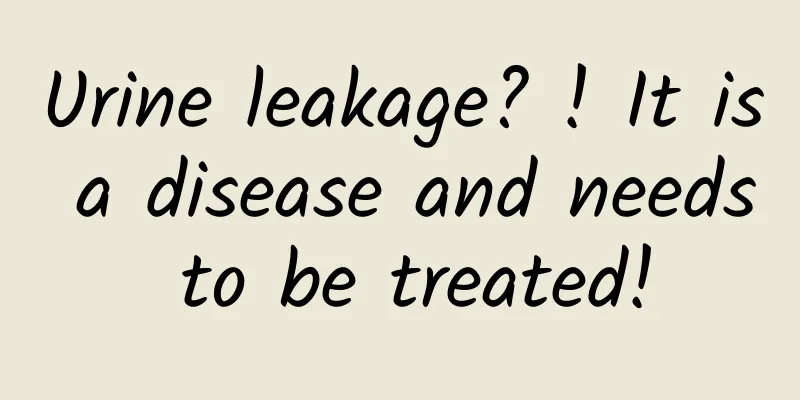The saltier you eat, the longer you live?! European Heart Journal analysis of data from 181 countries

|
A high-salt diet is considered a risk factor for cardiovascular disease and premature death. Some speculate that eating too much salt can lead to a shorter lifespan. However, on December 22, a study of 181 countries around the world showed that salt (sodium) intake was positively correlated with life expectancy and negatively correlated with the risk of all-cause mortality. This means that the saltier you eat, the longer your life expectancy and the lower your risk of death from all causes. Sodium intake and risk of healthy life expectancy at birth (blue) and all-cause mortality (red) In this study, in 2010, the analysis after correcting for potential confounding factors such as per capita GDP and body mass index showed that for every 1 g increase in average daily sodium intake (approximately equivalent to 2.5 g of table salt), the expected healthy life expectancy from birth was extended by 2.6 years and the expected healthy life expectancy at the age of 60 was extended by 0.3 years, but there was no significant association with the risk of death from non-communicable diseases. In addition, for every 1 gram increase in average daily sodium intake, all-cause mortality decreased by 131 cases per 100,000 people. A sensitivity analysis of the 46 highest-income countries also produced similar results: for every 1 g increase in average daily sodium intake, healthy life expectancy at birth was extended by 3.4 years and all-cause mortality was reduced by 168 cases per 100,000 people. In high-income, lower-middle-income and low-income countries, daily per capita sodium intake is also positively correlated with healthy life expectancy at birth, but high-middle-income countries are an exception. In the unadjusted model, the researchers found that life expectancy tended to stabilize when the average daily sodium intake was 4 to 5 g (approximately equivalent to 10 to 12.5 g of table salt), and then slightly shortened as the intake increased. The researchers note that the findings are surprising because a large number of studies have previously shown a direct correlation between sodium intake and blood pressure, but they say that in most previous studies, the correlation between sodium intake and blood pressure was shallow. A meta-analysis showed that in normotensive subjects and hypertensive patients, when the average daily sodium intake was reduced from 203 mmol to 65 mmol, blood pressure decreased by 1.1/0 and 5.7/2.9 mmHg, respectively. The researchers said blood pressure is only a surrogate endpoint and cannot be paralleled with hard endpoints such as death, heart attack and stroke. They believe that despite methodological limitations, current evidence shows that for most countries, a daily sodium intake of 2.3 to 4.6 g per person does not increase cardiovascular risk, and cardiovascular risk only increases when sodium intake exceeds 5 g/d. However, the researchers also acknowledged that this study was merely an observational study and its results cannot be used to guide nutritional intervention. The study used multiple databases, such as the United Nations Global Health Projections data, which includes World Health Organization healthy life expectancy data, age-standardized body mass index data, World Health Organization Global Health Projections data, United Nations Gross National Product Projections data, and the World Bank's 2010 classification of countries by income. The data showed that the highest quartile of sodium intake per capita per day was 4.17-5.98 g, with China among them. Kazakhstan had the highest sodium intake per capita, at 5.98 g, while Kenya had the lowest, at 1.48 g. Among 181 countries, Singapore has the longest healthy life expectancy at birth, at 74.8 years; Japan has the highest healthy life expectancy at age 60, at 20.3 years. Source: Sodium intake, life expectancy, and all-cause mortality. European Heart Journal, 22 December 2020 Reprint: Please indicate "China Circulation Magazine" |
<<: What exactly is asexuality?
Recommend
Why does leucorrhea smell like fish?
Leucorrhea is a substance secreted from the femal...
Beware! These are all recognized first-class carcinogens! They are hard to detect, and you may have them in your home...
This article was reviewed by Pa Li Ze, chief phys...
Dr. Gu defends the name of short-acting oral contraceptives
Content from : Gu Zhuowei Shanghai Jiao Tong Univ...
Don't buy this kind of ginger, it is highly poisonous!
Ginger is a very common food in our daily life. G...
Taking ethinyl estradiol for irregular menstruation
Irregular menstruation has become one of the most...
Is breast enhancement essential oil useful?
We are all very familiar with essential oils. It ...
What should I do if I feel uncomfortable in my stomach in the morning?
I don’t know if you all have this habit. The firs...
hcg reference value 13 days after transplantation
As we all know, Hcg value can reflect whether a p...
Do you know the correct way to lose weight by not eating after noon?
Today's weight loss methods are becoming more...
How to regulate a weak female constitution
Physical weakness is a common physical disease. S...
What does the zebra mean and symbolize? How does the zebra use its protective coloration?
Imagine a group of zebras with black, brown and w...
Differences in vulva at different ages
The vagina is the most private area of women, a...
What should women do if they have urinary pain? Don't deal with it blindly
Before introducing solutions to female urinary pa...
How to determine menopause
Menstruation is a sign that proves that women are...









